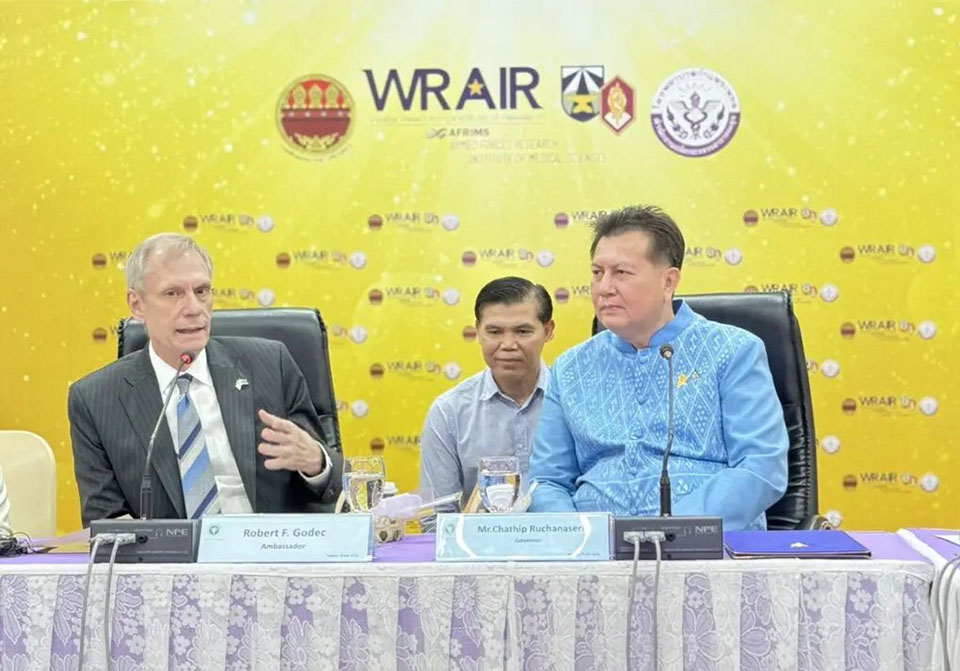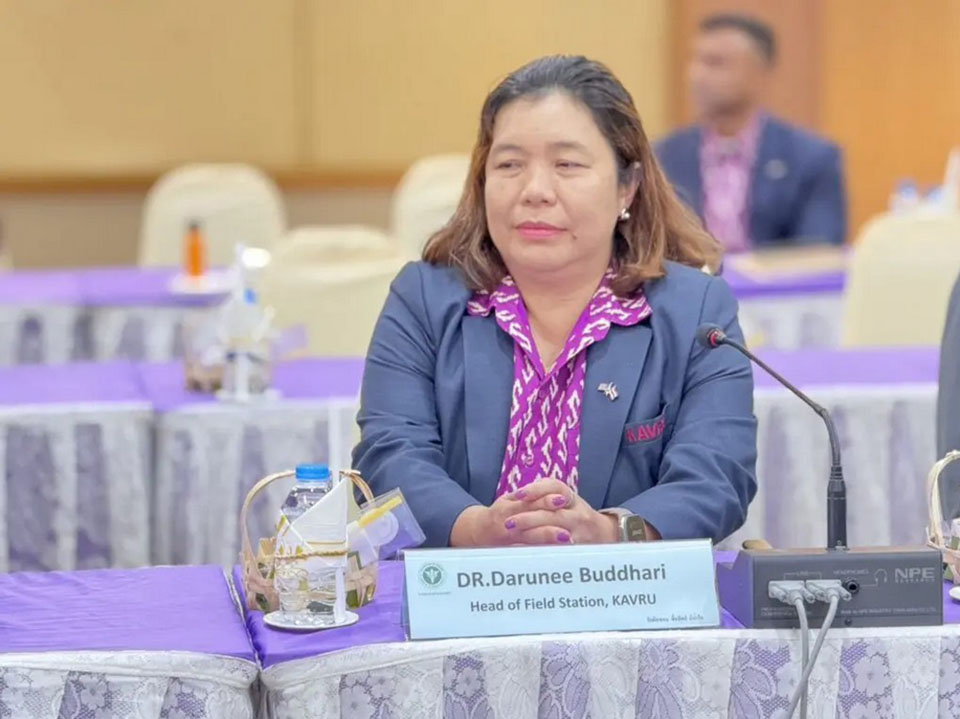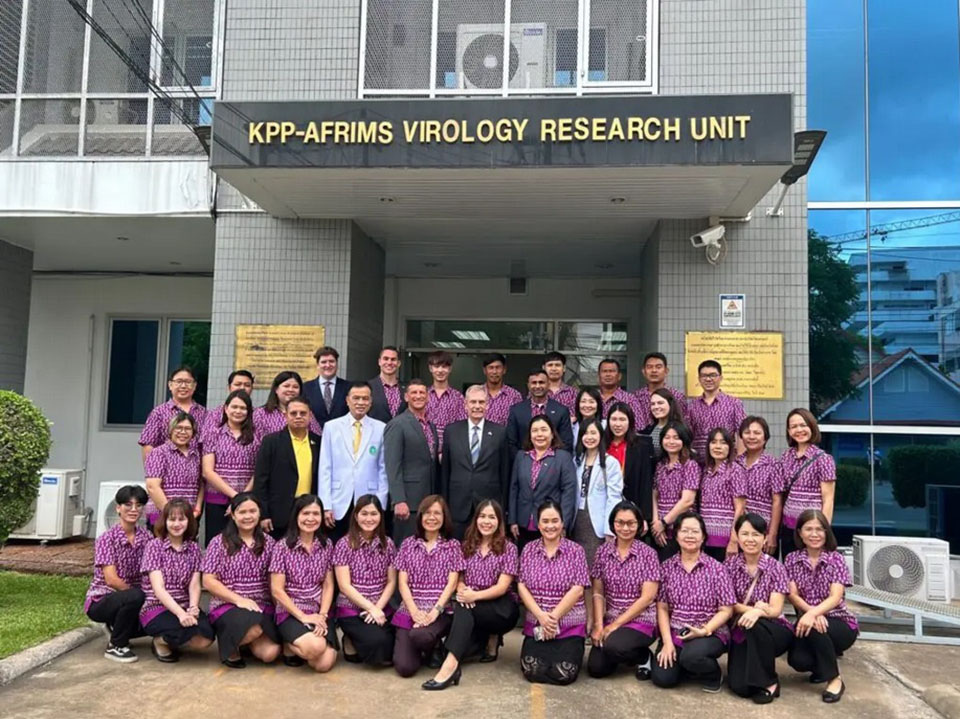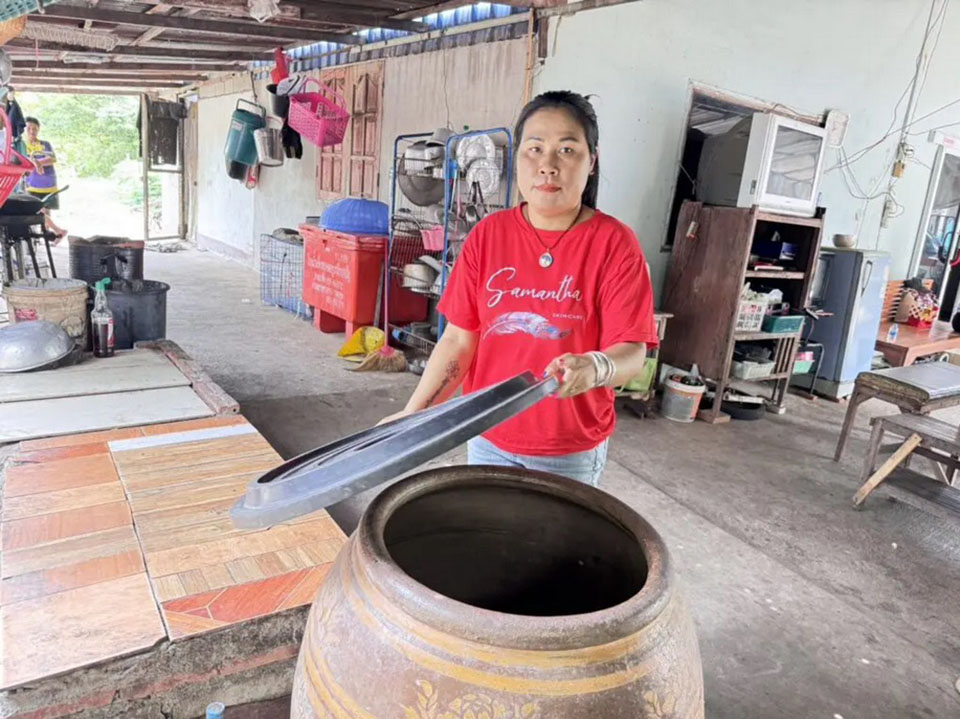
The U.S. Ambassador to Thailand visited the Kamphaeng Phet AFRIMS Virology Research Unit (KAVRU), one example of the cooperation between the Thai and U.S. governments that benefits the lives of Thai people to improve their quality of life in public health.
During his visit, H.E. Mr. Robert F. Godec Ambassador of the United States to Thailand was briefed by Dr. Darunee Buddhari, Chief of KAVRU, on the unit’s operations.
KAVRU is a unit under the Department of Virology at the Armed Forces Research Institute of Medical Sciences (AFRIMS), resulting from cooperation between Thailand’s Ministry of Public Health, the Walter Reed Army Institute of Research-Armed Forces Research Institute of Medical Sciences (WRAIR-AFRIMS), and Kamphaeng Phet Provincial Hospital to develop medicine and public health, especially for tropical diseases.
In 1980, KAVRU began research projects on diagnosing Japanese encephalitis outbreaks in Kamphaeng Phet caused by the Japanese encephalitis virus transmitted by mosquitoes.

Thus, studies on JE vaccine were initiated from 1984-1989. Additionally, they studied the efficacy of hepatitis A and dengue vaccines. These studies successfully led to the registration of all three vaccines. The JE vaccine was registered and included in the health promotion program of the Ministry of Public Health, significantly reducing JE morbidity and mortality rates.
The hepatitis A vaccine was registered for global use, while the dengue vaccine (Dengvaxia®) was registered and approved for use in Thailand.
Currently, the KAVRU has an ongoing research project that has been in progress for 9 years, known as the KFCS project. This project monitors dengue transmission within households in Kamphaeng Phet, with 3,500 local volunteers from over 500 households participating in monitoring their dengue immunity levels and testing for infections, as well as campaigning to prevent Aedes mosquitoes which transmit the virus.
The study is funded by the U.S. National Institutes of Health and the U.S. Army Medical Research Program on infectious diseases.

Ms. Somkuan Mopor, 44, one of the volunteers, revealed that before joining the project, she received clear information from KAVRU and the medical team, giving her confidence in its safety. She decided to participate for free while receiving good medical care throughout almost 9 years. Blood tests for dengue immunity are done annually, doctors call once a week to check on her health, and she can contact the project anytime if a family member falls ill.
Additionally, KAVRU receives funding from the U.S. Department of Defense’s Global Emerging Infections Surveillance (GEIS) program. This supports research on the epidemiology of influenza and respiratory viruses, including monitoring respiratory infections in outpatients and inpatients at Kamphaeng Phet Hospital.
The U.S. Ambassador stated that Thailand and the U.S. have had a strong relationship for over 190 years, deeply rooted at both public and national levels across trade, security, and people-to-people exchanges. Importantly, the two countries have cooperated in public health and medical research for over 40 years through agencies, benefiting not only Thais but also humanity. (TNA)









